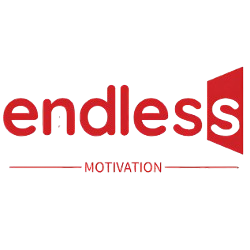We often misunderstand boundaries. We imagine them as walls, as rigid, impenetrable barriers we erect to keep other people out. We fear they are selfish, that they will create distance and conflict. This misunderstanding is why so many of us live lives of quiet resentment, chronic exhaustion, and feeling perpetually used. We say “yes” when we mean “no,” we absorb the emotional energy of others, and we wonder why we feel so empty.
The truth is, boundaries are not walls. They are the gates, fences, and property lines of the self. They are not about keeping people out; they are about defining where you begin and where you end. They are the foundational practice of self-respect, and without them, no healthy relationship—with others or with ourselves—can exist.
But how do we build them? In moments of pressure, our resolve can crumble. Our well-rehearsed explanations evaporate, and we default to old, people-pleasing habits. This is where the three-word quote becomes an essential tool of liberation. It is a cognitive shield, a pre-programmed line of defense that is simple enough to deploy under pressure and profound enough to protect your most valuable asset: your inner peace. This exploration is a journey into the architecture of the self, using these triple-worded tools to construct the boundaries that don’t isolate you, but rather, set you free to engage with the world from a place of wholeness and choice.
Part 1: The Psychology of the Unbounded Self – Why We Struggle
To understand the power of a boundary-setting quote, we must first diagnose the problem. The inability to set boundaries usually stems from deep-seated psychological programming.
1. The Disease to Please:
For many, self-worth is externally sourced. It becomes tied to being liked, being helpful, and avoiding conflict at all costs. Saying “no” feels like a rejection of the other person, which the brain equates with a mortal social threat. The short-term anxiety of setting a boundary feels more dangerous than the long-term drain of violating our own needs.
2. The Fear of Being “Selfish”:
We are often taught, especially in certain cultures and genders, that prioritizing ourselves is wrong. We are told to put others first. This creates a toxic confusion where basic self-care is labeled as selfishness. We need a new, simple narrative to rebut this internalized critic.
3. Cognitive Overload in the Moment:
When your boss asks you to work late, or a friend demands your emotional energy, the request triggers an internal conflict. The prefrontal cortex, responsible for complex reasoning, gets overwhelmed by the social anxiety and the desire to be liked. A long, perfectly reasoned explanation for your “no” is impossible to access. You need a simple, pre-loaded script.
This is the precise function of the three-word boundary quote. It is a cognitive bypass. It provides a simple, clear, and repeatable script that can be executed even under high social pressure, allowing you to hold your line while remaining calm and respectful.
Part 2: The Boundary Blueprint – A Three-Word Quote for Every Type of Encroachment
Boundaries are not one-size-fits-all. They are needed in different areas of our lives. Here is a blueprint, a toolkit of three-word quotes designed for specific boundary violations.
Category 1: The Guardian of Time and Energy
These quotes protect your most finite resources from the demands of others.
- “That doesn’t work.”
- The Application: The ultimate simple “no.” It requires no justification. When asked to take on a task, attend a meeting, or do a favor that drains you, this is your response. It is a statement of fact about your life, not a negotiation. You are not available. Full stop.
- When to use: A colleague dumping work on you, a request that infringes on your personal time.
- “I have capacity.”
- The Application: This reframes your worth away from your productivity. You are not a machine with unlimited processing power. By stating you are “at capacity,” you are communicating a biological and energetic truth. It’s not that you won’t do it; you can’t without harming your own system.
- When to use: When you are already overwhelmed and another demand is placed on you.
- “I’ll need to.”
- The Application: This phrase creates a necessary pause. Instead of an immediate, people-pleasing “yes,” you train yourself to say, “I’ll need to check my calendar,” or “I’ll need to think about that.” It gives you back the power of time to make a decision aligned with your true priorities, not their urgency.
- When to use: Any request that requires an immediate answer you’re not prepared to give.
Category 2: The Shield of Emotional Space
These quotes protect your inner world from the emotional drama, negativity, and opinions of others.
- “I disagree respectfully.”
- The Application: A powerful way to hold your ground in a discussion without being drawn into a fight. It allows you to state your differing opinion while maintaining respect, effectively building a wall against attempts to change your mind through pressure.
- When to use: During contentious family discussions, debates with friends, or in meetings.
- “That’s your opinion.”
- The Application: The ultimate tool for deflecting unsolicited advice, criticism, or judgment. It acknowledges that you’ve heard them while simultaneously drawing a bright line between their perspective and your reality. You accept that they have an opinion, but you do not accept it as your truth.
- When to use: When a family member criticizes your life choices, when a coworker offers unwanted advice.
- “I can’t fix this.”
- The Application: For the chronic “fixers” and rescuers among us. This phrase establishes a boundary around a problem that is not yours to solve. It is a declaration that you are not responsible for another adult’s emotions or consequences, freeing you from the burden of their chaos.
- When to use: When someone repeatedly comes to you with problems they are capable of solving themselves, expecting you to manage their life.
Category 3: The Compass of Self-Worth and Values
These quotes are used to affirm your intrinsic value and make choices based on your core values, not external pressure.
- “My needs matter.”
- The Application: A direct counter-mantra to the fear of being selfish. This is a statement you say to yourself, a fundamental truth to build your life upon. When you feel guilty for taking time for yourself, for saying no, for spending money on self-care, this is your reminder.
- When to use: As a daily affirmation, or in moments of guilt after prioritizing yourself.
- “This is me.”
- The Application: A boundary of authenticity. It is a declaration that you will not hide, shrink, or contort yourself to fit into someone else’s box. It is the boundary you set against the pressure to conform.
- When to use: When you feel pressure to act against your personality, values, or identity to be accepted.
- “I choose peace.”
- The Application: This quote makes your priority clear. When faced with a choice to engage in drama, a toxic argument, or a stressful situation, this phrase is your compass. It is a boundary you set with yourself, choosing to walk away from what disturbs your inner peace.
- When to use: When tempted to get drawn into online arguments, family drama, or workplace gossip.
Part 3: The Art of Delivery – How to Speak Your Boundary with Power
The words are only half the battle. The delivery is what gives them power.
- The Calm, Neutral Tone: The magic of these phrases is their neutrality. Say them calmly, without anger, apology, or sarcasm. You are simply stating a fact about your reality, not issuing a challenge. “That doesn’t work for me” said calmly is a statement. Said with anger, it’s an attack.
- The “No JADE” Rule: Do not Justify, Argue, Defend, or Explain. The moment you start explaining why you’re setting the boundary, you open it up for negotiation. “That doesn’t work for me” is a complete sentence. “That doesn’t work for me because I have to wash my hair” is an invitation for them to suggest another time.
- The Broken Record: If the person persists, simply repeat your three-word phrase, or a slight variation. “I understand, but that doesn’t work for me.” “As I said, I’m at capacity.” Calm repetition signals that you are immovable without being aggressive.
Part 4: The Integration – Making Boundaries a Habit
Building boundaries is a muscle that requires training.
- Start Small: Don’t begin with your most demanding relative. Practice with a low-stakes situation, like declining a telemarketer’s offer or telling a friend you can’t talk right now.
- The Post-Boundary Pause: After you successfully set a boundary, you will likely feel a rush of anxiety. This is normal. Acknowledge it. Then, notice what follows: the immense sense of self-respect and freedom. Let that feeling be your reward and your motivation.
- Create a Personal Bill of Rights: Write down your non-negotiable three-word quotes as a personal charter. “My needs matter.” “My time is valuable.” “I choose peace.” Read it daily to reprogram your subconscious beliefs.
Conclusion: The Freedom on the Other Side of the Line
Setting a boundary is an act of faith. It is faith that you are worthy of protection. It is faith that a relationship that cannot respect your boundaries was not a source of true sustenance, but of drain. It is faith that on the other side of the initial discomfort is a profound and lasting peace.
The three-word quote is your key to this freedom. It is the simple, sturdy lock on the gate of your self. It is not a weapon to push people away, but a tool to ensure that those who enter your life do so with respect for the person who lives there.
So, choose your phrases. Practice them in the mirror. Wear them as armor. Let “That doesn’t work” guard your time. Let “That’s your opinion” shield your spirit. Let “My needs matter” be the foundation of your worth.
In the end, the most loving thing you can do for everyone in your life is to show them how to love you by defining the terms. And sometimes, all it takes is three clear words to draw the line that saves your soul.
Your peace is waiting. Protect it.

